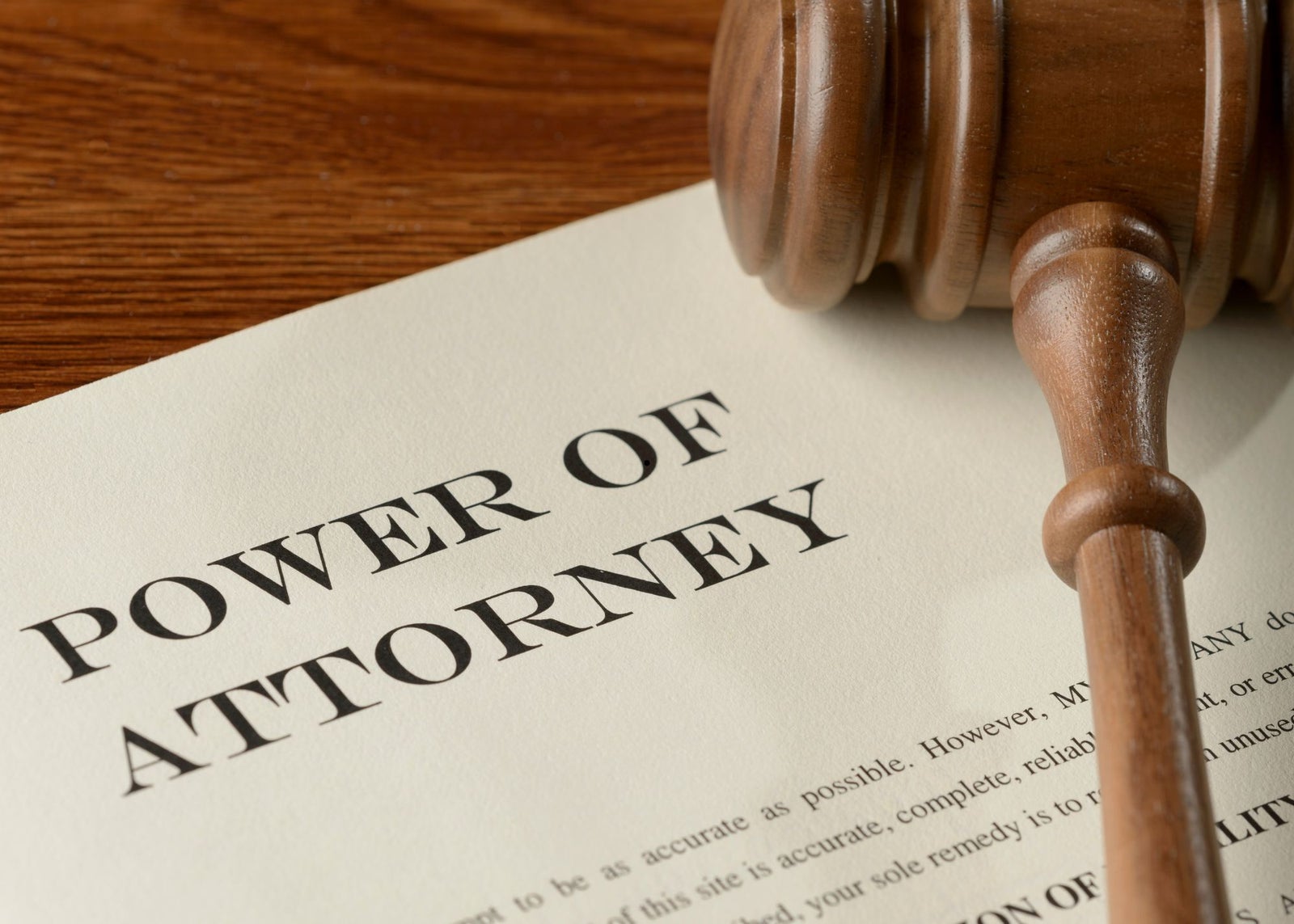Bl

Have you ever run into a situation where you just couldn’t be there to sign on the dotted line? That’s where a Power of Attorney can be a game changer. It lets someone you trust take care of the paperwork and decisions so things keep moving forward, no matter what life throws your way.
A Power of Attorney is a legal document that grants a designated person — called the agent — the authority to make decisions and act on behalf of another person, known as the principal. In real estate, it’s especially helpful when you physically can’t be present or just need someone to help manage the process.
Types of Power of Attorney
POAs aren’t one-size-fits-all — different situations call for different types:
1. General Power of Attorney
Lets your chosen person handle a wide range of tasks, like paying bills, managing bank accounts, or selling property. It’s great for everyday matters but usually ends if you become seriously ill or unable to make decisions.
2. Enduring Power of Attorney
Works like a general POA but keeps going even if you get sick or can’t make decisions for yourself. A smart choice for long-term planning.
3. Limited Power of Attorney
Gives someone authority for one specific thing, like signing documents for a real estate deal or managing a single property, and nothing else.
A common misconception is that a POA continues after death — it doesn’t. The authority ends the moment the person who granted it passes away. From that point, the executor named in the will takes over. If the same person holds both roles, they now shift into handling the estate under probate law.
Benefits of a Power of Attorney
• Avoid Delays – Without a POA, bills can go unpaid, investments unmanaged, or deals fall through while people wait for legal permission.
• Prevent Stress for Loved Ones – Without one, your family may face a long, expensive court process to get authority to help you.
• Stay in Control – You decide who acts for you, not the courts.
• Plan for the Unexpected – Even if you’re healthy, life can change suddenly.
• Protect Your Interests – Your agent can act quickly to safeguard your assets and decisions
Pick someone you completely trust — whether that’s a family member, close friend, or professional like a lawyer. Make sure they know your wishes and are comfortable with the responsibility.
How to Set One Up
Setting up a POA is pretty straightforward:
1. Figure out the details – Decide exactly what powers you want to give, when you want to give them, and for how long.
2. Pick your person – Choose someone you trust to handle things for you.
3. Put it in writing – Complete the legal forms and clearly outline what they can and can’t do.
4. Make it official – Sign the document. BC requires two witnesses, or one witness if that witness is a lawyer or notary.
If you’re thinking about setting up a POA, Keith Barron at Clark Woods is our trusted real estate lawyer. He can walk you through the process and make sure every detail is covered.
A Power of Attorney is a legal document that grants a designated person — called the agent — the authority to make decisions and act on behalf of another person, known as the principal. In real estate, it’s especially helpful when you physically can’t be present or just need someone to help manage the process.
Types of Power of Attorney
POAs aren’t one-size-fits-all — different situations call for different types:
1. General Power of Attorney
Lets your chosen person handle a wide range of tasks, like paying bills, managing bank accounts, or selling property. It’s great for everyday matters but usually ends if you become seriously ill or unable to make decisions.
2. Enduring Power of Attorney
Works like a general POA but keeps going even if you get sick or can’t make decisions for yourself. A smart choice for long-term planning.
3. Limited Power of Attorney
Gives someone authority for one specific thing, like signing documents for a real estate deal or managing a single property, and nothing else.
4. Springing Power of Attorney
A Power of Attorney that comes into effect only upon a specific event happening. Usually created by healthy adults who want to appoint a trusted Attorney just in case they lose capacity in the future.
5. Representation Agreement
Allows your chosen person to make healthcare decisions if you’re unable to speak for yourself. Essential if you want your medical wishes respected.
A Power of Attorney that comes into effect only upon a specific event happening. Usually created by healthy adults who want to appoint a trusted Attorney just in case they lose capacity in the future.
5. Representation Agreement
Allows your chosen person to make healthcare decisions if you’re unable to speak for yourself. Essential if you want your medical wishes respected.
A common misconception is that a POA continues after death — it doesn’t. The authority ends the moment the person who granted it passes away. From that point, the executor named in the will takes over. If the same person holds both roles, they now shift into handling the estate under probate law.
Benefits of a Power of Attorney
• Avoid Delays – Without a POA, bills can go unpaid, investments unmanaged, or deals fall through while people wait for legal permission.
• Prevent Stress for Loved Ones – Without one, your family may face a long, expensive court process to get authority to help you.
• Stay in Control – You decide who acts for you, not the courts.
• Plan for the Unexpected – Even if you’re healthy, life can change suddenly.
• Protect Your Interests – Your agent can act quickly to safeguard your assets and decisions
Pick someone you completely trust — whether that’s a family member, close friend, or professional like a lawyer. Make sure they know your wishes and are comfortable with the responsibility.
How to Set One Up
Setting up a POA is pretty straightforward:
1. Figure out the details – Decide exactly what powers you want to give, when you want to give them, and for how long.
2. Pick your person – Choose someone you trust to handle things for you.
3. Put it in writing – Complete the legal forms and clearly outline what they can and can’t do.
4. Make it official – Sign the document. BC requires two witnesses, or one witness if that witness is a lawyer or notary.
If you’re thinking about setting up a POA, Keith Barron at Clark Woods is our trusted real estate lawyer. He can walk you through the process and make sure every detail is covered.
